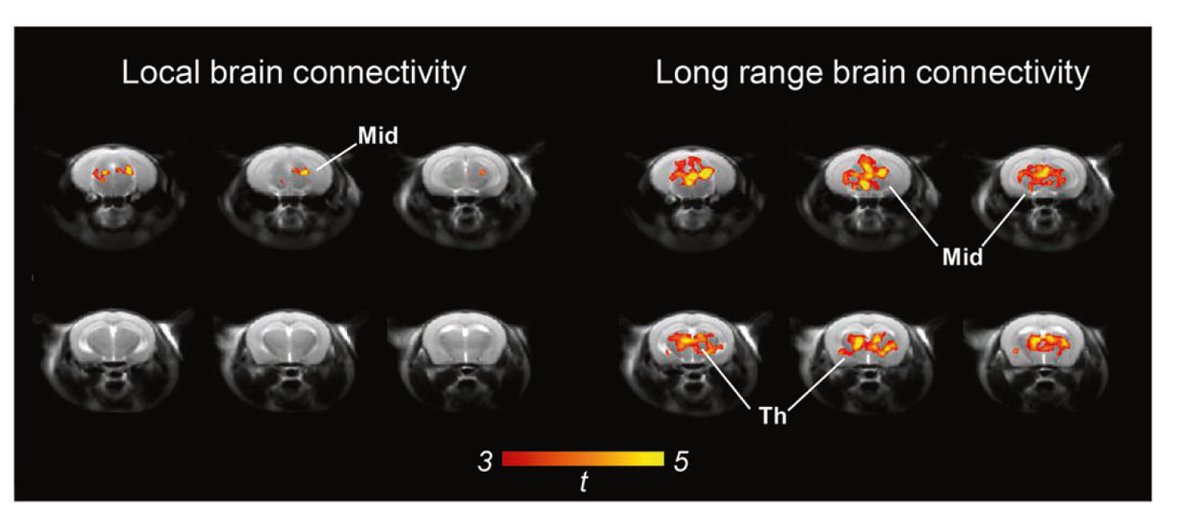Out in @NPP_Journal our investigation of how cholinergic M1/M4 stimulation (as well as NMDAR antagonism) affect  brain connectivity.
brain connectivity.
Full text http://rdcu.be/ccO0r
http://rdcu.be/ccO0r
https://www.nature.com/articles/s41386-020-00916-0
Some "take-home" messages below 1/7
 brain connectivity.
brain connectivity. Full text
 http://rdcu.be/ccO0r
http://rdcu.be/ccO0r https://www.nature.com/articles/s41386-020-00916-0
Some "take-home" messages below 1/7
(a) Pharmacological stimulation of muscarinic receptors (M1/M4) results in robust fMRI activation of the mouse brain. Effect wide-spread (but note thalamus) and confirmed by O2 amperometry in awake rats (i.e. unlikely to be affected by anesthesia). 2/7
(b) Pharmacological stimulation of muscarinic receptors (M1/M4) reduces both local and long-range fMRI connectivity in the mouse brain. Effect especially prominent in Default mode network 3/7
(c) fMRI connectivity reduction is associated (and consistent) with alfa, beta, gamma and high frequency EEG desynchronization 4/7
(d) As muscarinic agent have putative antipsychotic properties, we also mapped the effect of the NMDAR antagonist phencyclidine (PCP) on brain connectivity (note that PCP is a ketamine analogue). We found that PCP increases long-range connectivity in thalamus-PFC-hippocampus 5/7
(e) Interestingly, we also found that M1/M4 receptor stimulation antagonizes BOLD fMRI, connectivity, EEG and behavioral response to PCP, supporting a possible antipsychotic effect of the tested muscarinic agonist "xanomeline" 6/7
Many thanks to @herecaterina and all the involved lab members for putting this together, and kudos to the excellent @lillypad collaborators for designing and carrying out many of these investigations 7/7

 Read on Twitter
Read on Twitter






